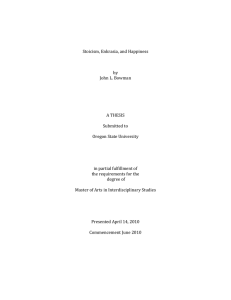Abstract
advertisement
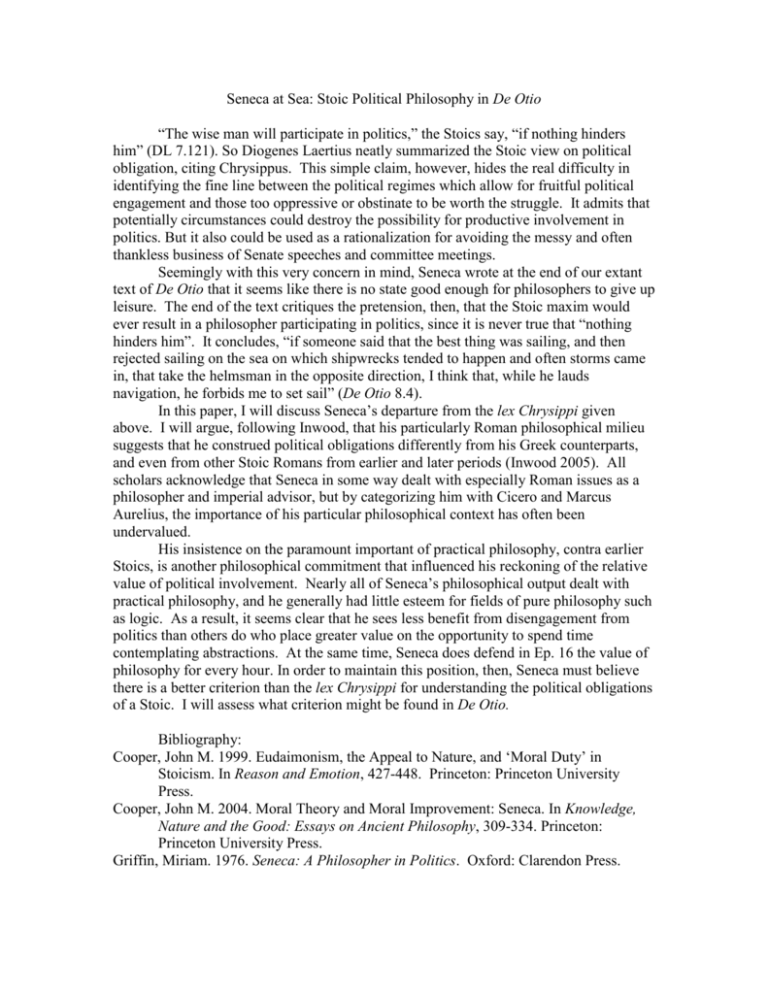
Seneca at Sea: Stoic Political Philosophy in De Otio “The wise man will participate in politics,” the Stoics say, “if nothing hinders him” (DL 7.121). So Diogenes Laertius neatly summarized the Stoic view on political obligation, citing Chrysippus. This simple claim, however, hides the real difficulty in identifying the fine line between the political regimes which allow for fruitful political engagement and those too oppressive or obstinate to be worth the struggle. It admits that potentially circumstances could destroy the possibility for productive involvement in politics. But it also could be used as a rationalization for avoiding the messy and often thankless business of Senate speeches and committee meetings. Seemingly with this very concern in mind, Seneca wrote at the end of our extant text of De Otio that it seems like there is no state good enough for philosophers to give up leisure. The end of the text critiques the pretension, then, that the Stoic maxim would ever result in a philosopher participating in politics, since it is never true that “nothing hinders him”. It concludes, “if someone said that the best thing was sailing, and then rejected sailing on the sea on which shipwrecks tended to happen and often storms came in, that take the helmsman in the opposite direction, I think that, while he lauds navigation, he forbids me to set sail” (De Otio 8.4). In this paper, I will discuss Seneca’s departure from the lex Chrysippi given above. I will argue, following Inwood, that his particularly Roman philosophical milieu suggests that he construed political obligations differently from his Greek counterparts, and even from other Stoic Romans from earlier and later periods (Inwood 2005). All scholars acknowledge that Seneca in some way dealt with especially Roman issues as a philosopher and imperial advisor, but by categorizing him with Cicero and Marcus Aurelius, the importance of his particular philosophical context has often been undervalued. His insistence on the paramount important of practical philosophy, contra earlier Stoics, is another philosophical commitment that influenced his reckoning of the relative value of political involvement. Nearly all of Seneca’s philosophical output dealt with practical philosophy, and he generally had little esteem for fields of pure philosophy such as logic. As a result, it seems clear that he sees less benefit from disengagement from politics than others do who place greater value on the opportunity to spend time contemplating abstractions. At the same time, Seneca does defend in Ep. 16 the value of philosophy for every hour. In order to maintain this position, then, Seneca must believe there is a better criterion than the lex Chrysippi for understanding the political obligations of a Stoic. I will assess what criterion might be found in De Otio. Bibliography: Cooper, John M. 1999. Eudaimonism, the Appeal to Nature, and ‘Moral Duty’ in Stoicism. In Reason and Emotion, 427-448. Princeton: Princeton University Press. Cooper, John M. 2004. Moral Theory and Moral Improvement: Seneca. In Knowledge, Nature and the Good: Essays on Ancient Philosophy, 309-334. Princeton: Princeton University Press. Griffin, Miriam. 1976. Seneca: A Philosopher in Politics. Oxford: Clarendon Press. Inwood, Brad. 2005. Reading Seneca: Stoic Philosophy at Rome. Oxford: Oxford University Press. Long, A. A., and Sedley, D. N. 1987. The Hellenistic Philosophers. Cambridge: Cambridge University Press. Long, A. A. 2003. Roman philosophy. In The Cambridge Companion to Greek and Roman Philosophy, edited by David Sedley, 184-210. Cambridge: Cambridge University Press.
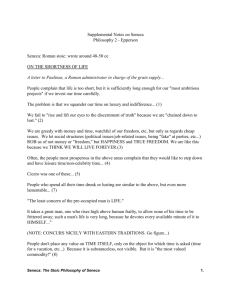


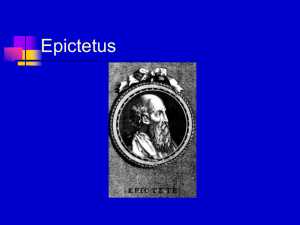




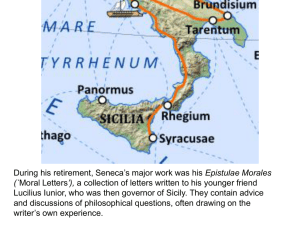


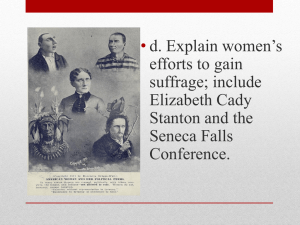
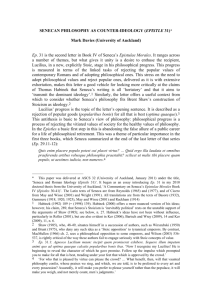
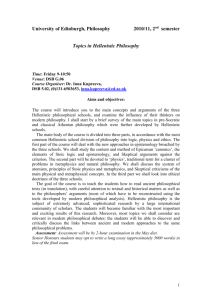
![[Penguin Classics] Lucius Annaeus Seneca, Robin Campbell (trans.) - Letters from a Stoic (1969, Penguin Books) - libgen.li](http://s2.studylib.net/store/data/027437735_1-fa8cf11376016653fe61d54f53f8b9b8-300x300.png)
